 Thursday, February 7, 2019 |
Thursday, February 7, 2019 |  Hugh Locke
Hugh Locke Celebrating Haiti's First Commercial Cotton Harvest in Three Decades
 Timberland and Smallholder Farmers Alliance representatives join local farmers to celebrate Haiti's
Timberland and Smallholder Farmers Alliance representatives join local farmers to celebrate Haiti's
first commercial cotton harvest in 30 years. Photo credit: Thomas Noreille / SFA.
Last week three representatives of global outdoor lifestyle brand Timberland joined smallholder farmers in Haiti to pick cotton as part of Haiti's' first commercial cotton harvest in 30 years. Since 2016, Timberland has partnered with the Smallholder Farmers Alliance (SFA) on an initiative to reintroduce cotton farming -- once the country's fourth-largest export crop -- to Haiti. The recent harvest was a key milestone in the project, which aims to create a new sustainable supply chain of organically grown cotton while simultaneously providing social and environmental benefits to Haitian farm communities.
“Our work with the Smallholder Farmers Alliance to reintroduce cotton growing touches on each of Timberland’s key commitments – to create responsible products, protect the outdoors and serve communities around the world,” said Atlanta McIlwraith, Timberland’s senior manager community engagement and communication. “Before long, we will have a new source of sustainable cotton for our products through a model that also reforests Haiti and improves farmers’ lives.”
Timberland’s director of material development, Alison Spahr, shared a different perspective. “Designing products usually starts in the office. But now it begins here, with the smallholder farmers growing the cotton. I am thrilled to be in this field today, at the very start of the supply chain for a new material that offers such a powerful social and environmental impact story to share with our consumers.”
 Allison Spahr inspecting cotton with smallholder Jean Alcide (left); Timote Georges and Hugh Locke,
Allison Spahr inspecting cotton with smallholder Jean Alcide (left); Timote Georges and Hugh Locke,
co-founders of the Smallholder Farmers Alliance (right). Photo: Thomas Norielle / SFA.Timberland's involvement in Haiti did not start with cotton, but rather with trees. The company initially partnered with the SFA to fulfill its 2010 public commitment to plant five million trees in five years. The SFA fulfilled the commitment by applying a new model through which farmers grow trees to earn a range of crop seeds, tools, training and other agricultural services. Over five years, not only did the SFA plant five million trees (more than seven million to date), participating farmers saw an average 40% increase in crop yield which led to an average increase in income of 50 to 100%. The SFA named its innovative new model "tree currency."
Now that Timberland has evolved from being a sponsor to a customer of Haitian-grown organic cotton, this tree currency remains central to the operation. Fueled by additional support from the VF Foundation to invest in program infrastructure, the SFA model will expand to allow farmers to continue to grow trees to finance food and cotton crops side by side (and in rotation), with cotton on marginal and less fertile land. Over the next five years the SFA expects to plant an additional 25 million trees and grow cotton exports to 10 million pounds a year.
The farmers also see the potential. "We are all very happy that cotton is back," commented smallholder Jean Alcide, "It is a good sign for the future of agriculture in Haiti."

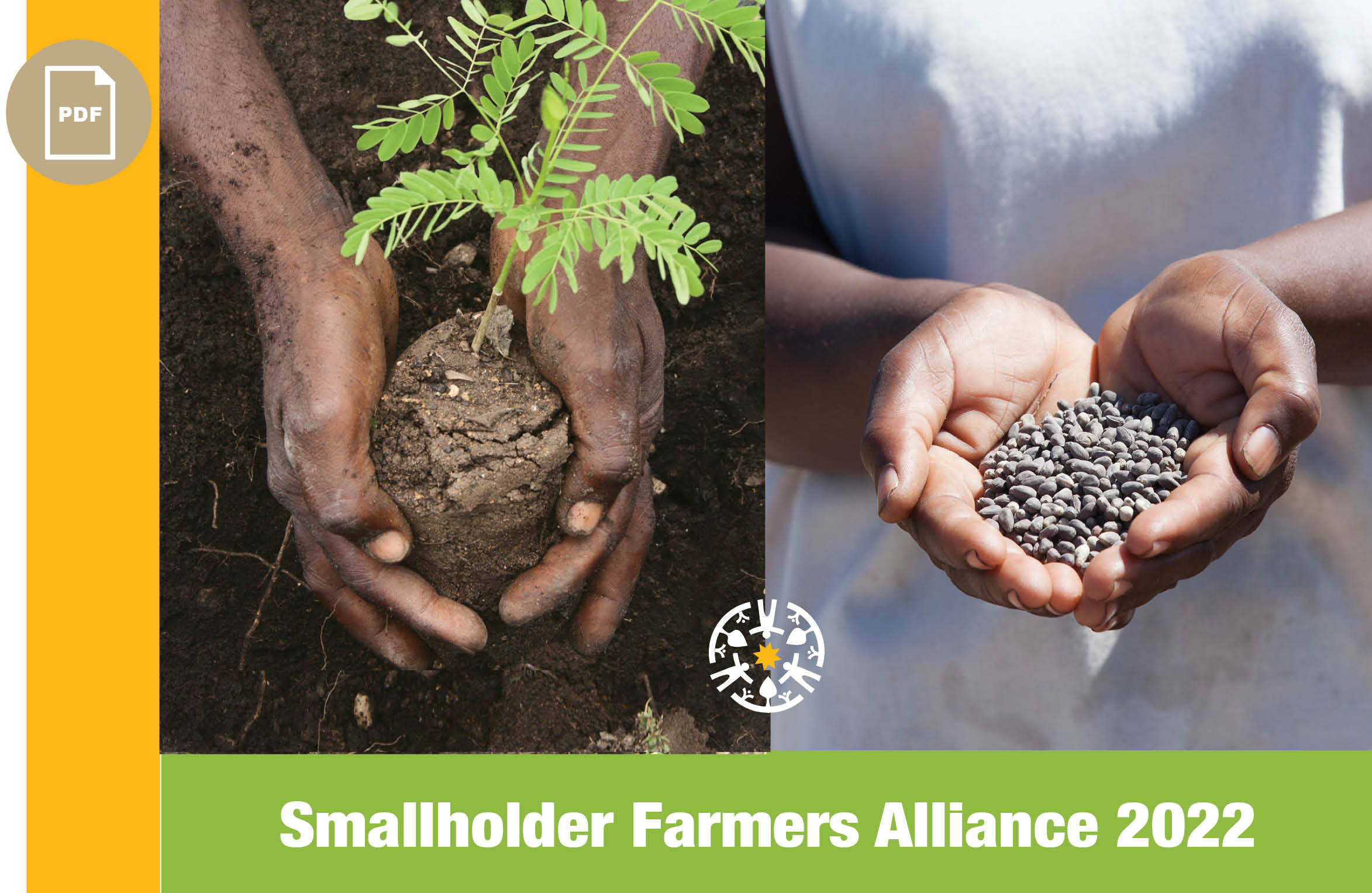
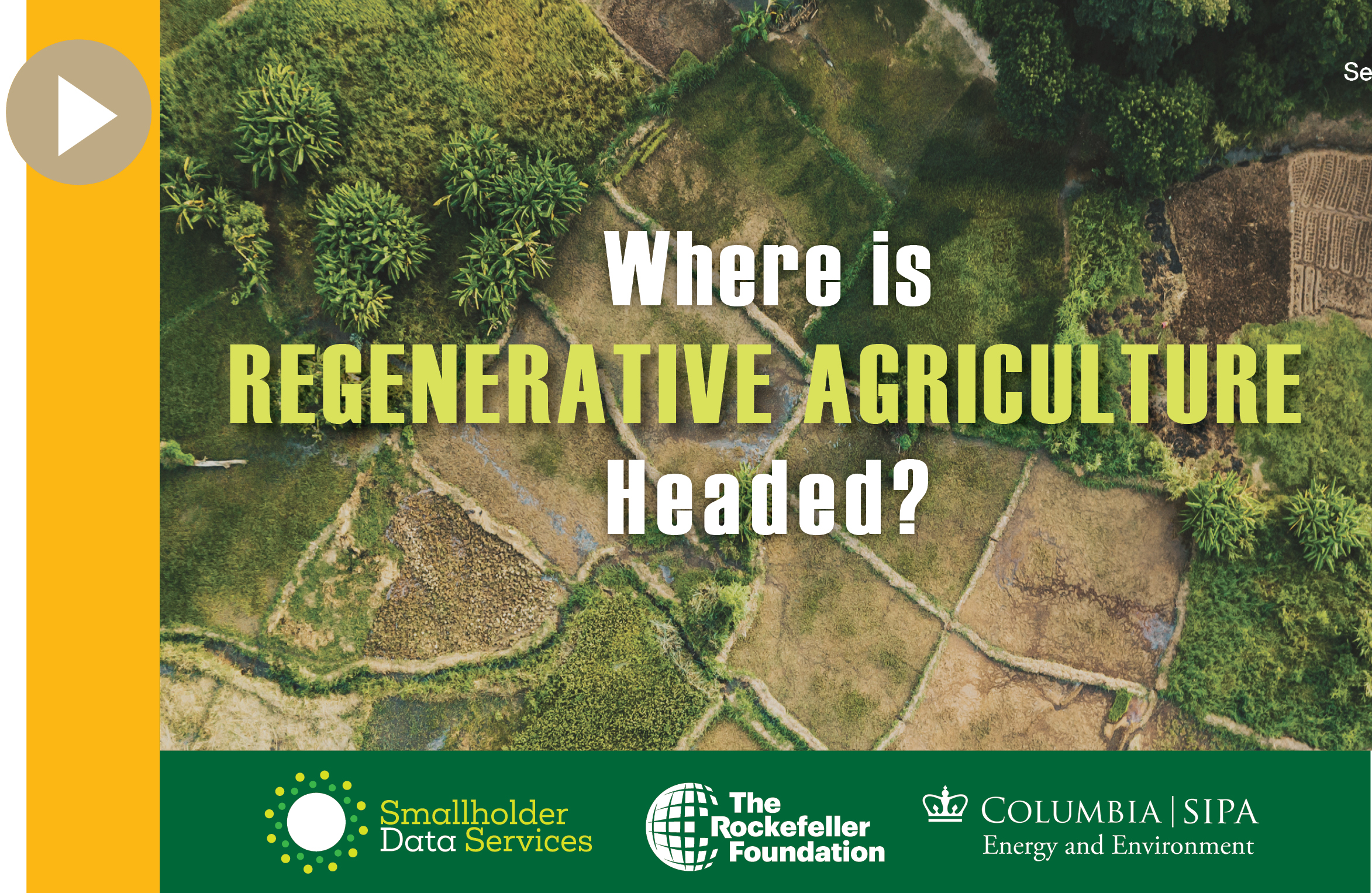
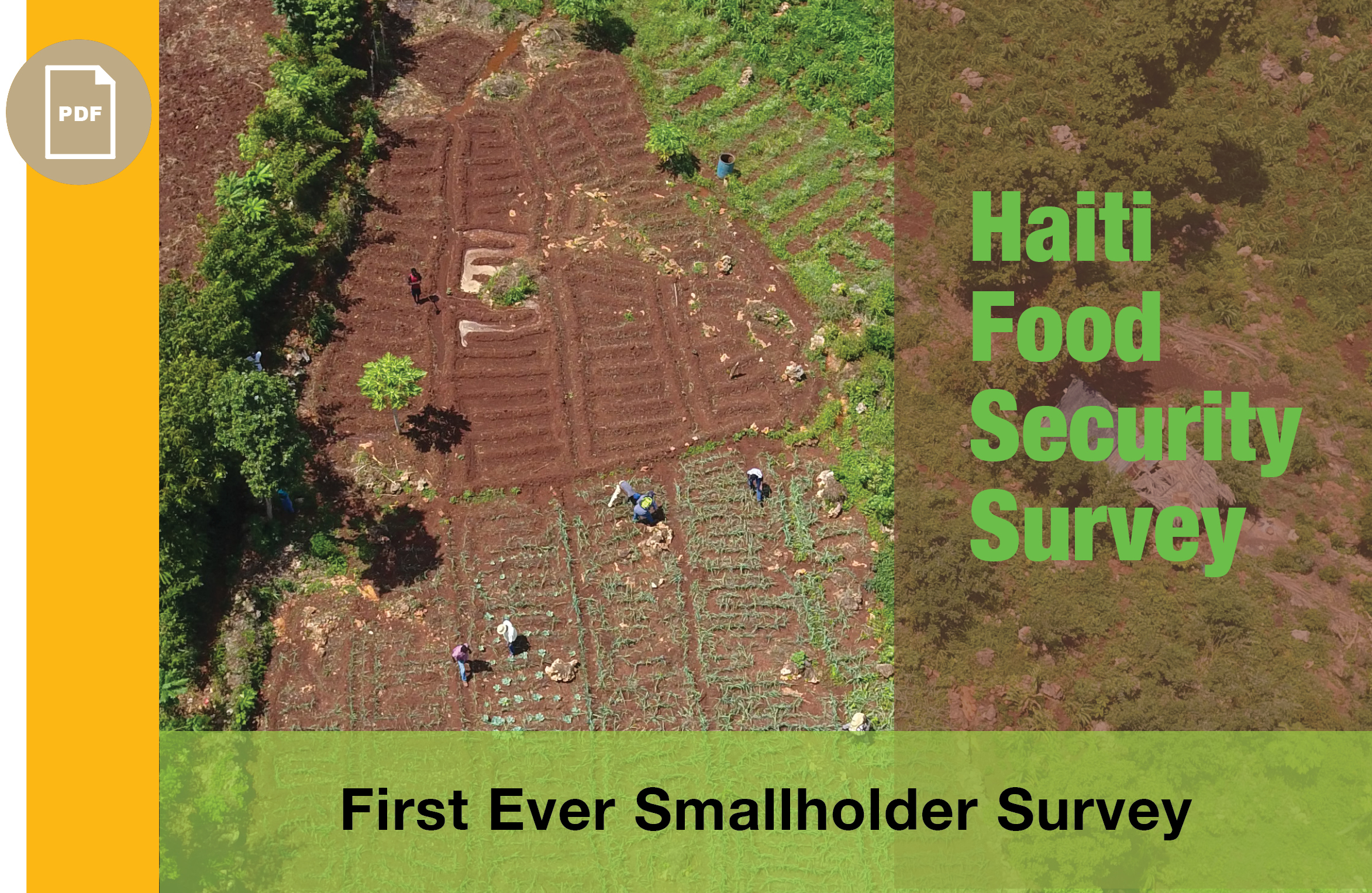
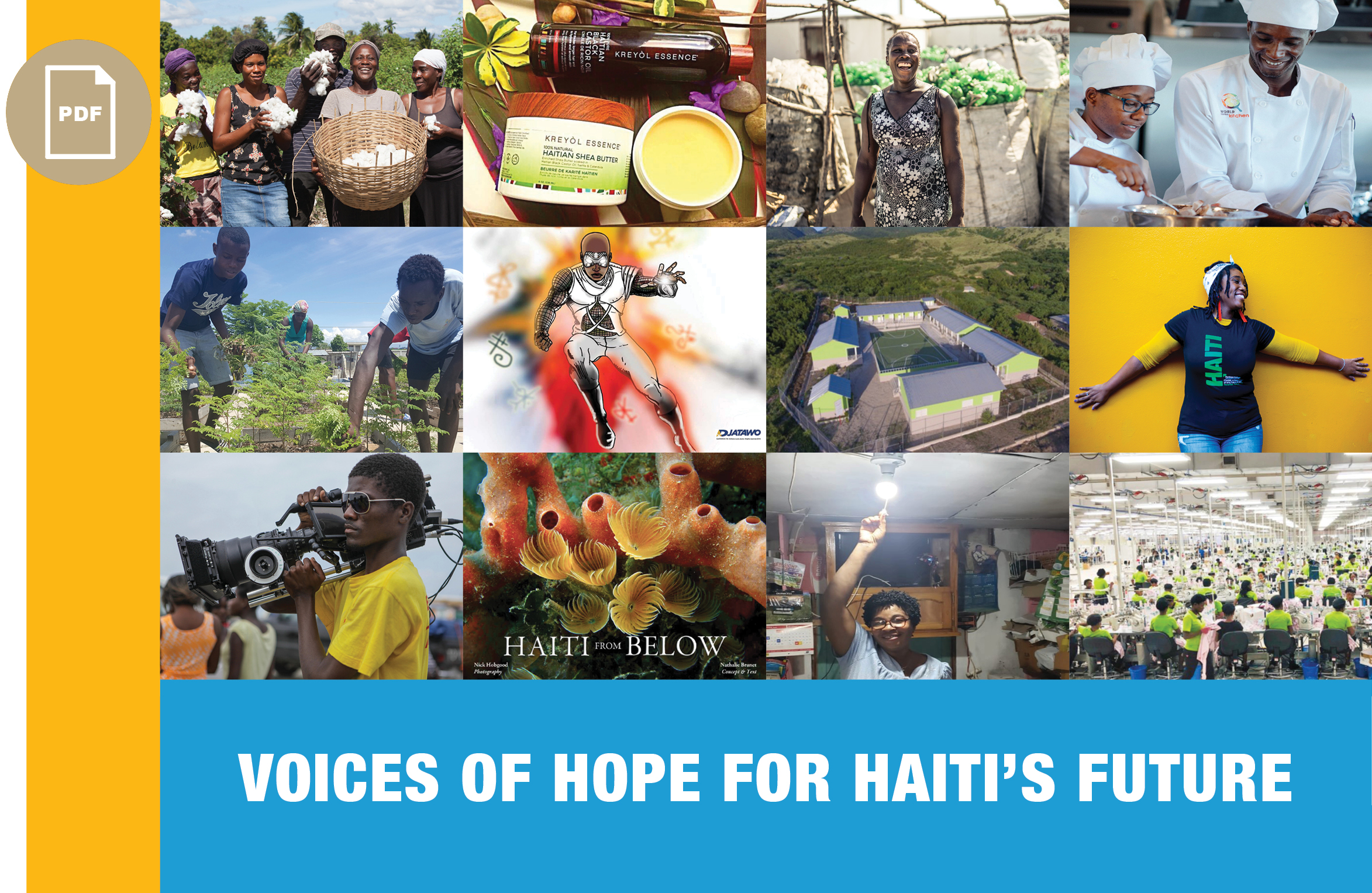
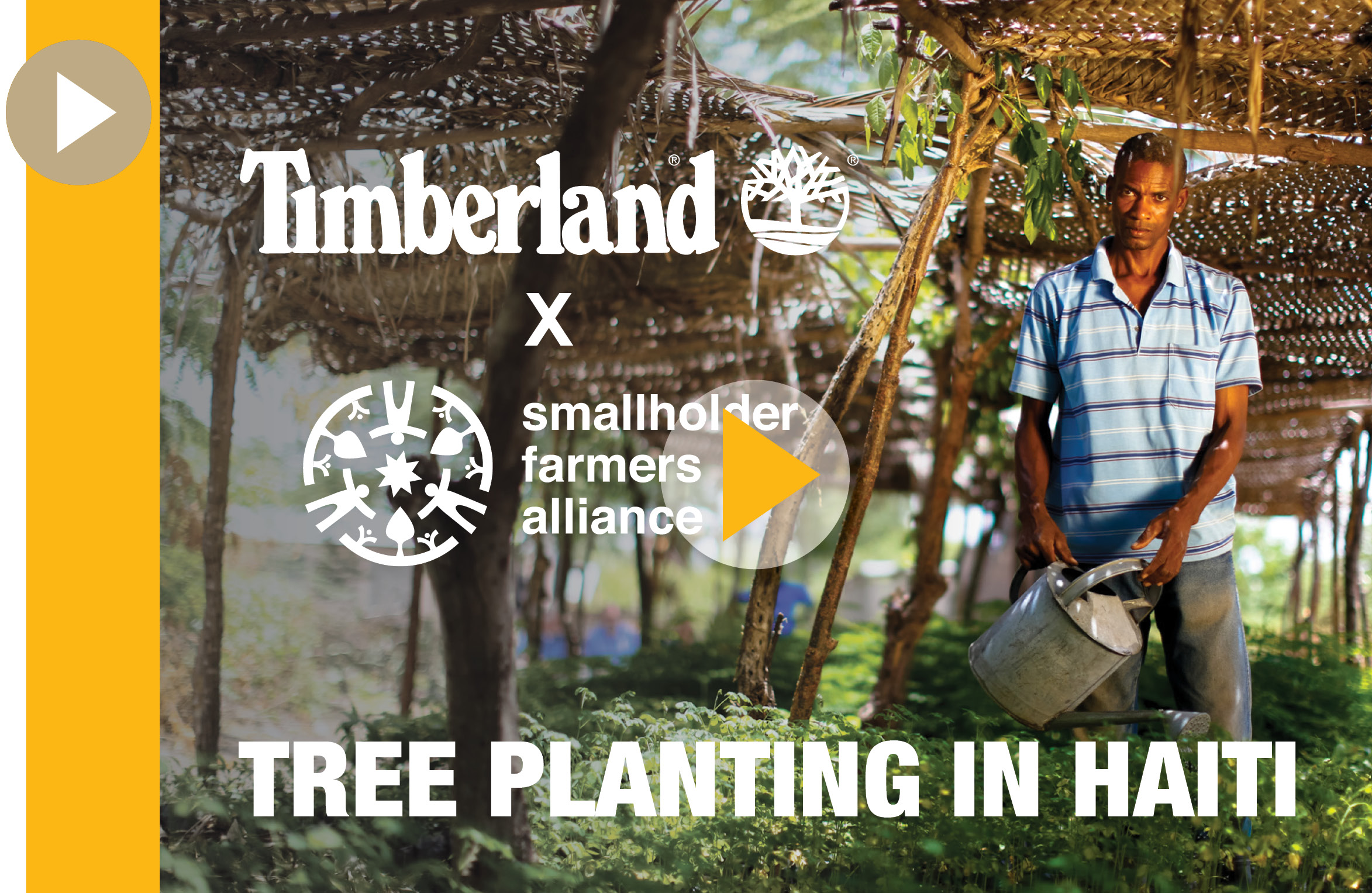
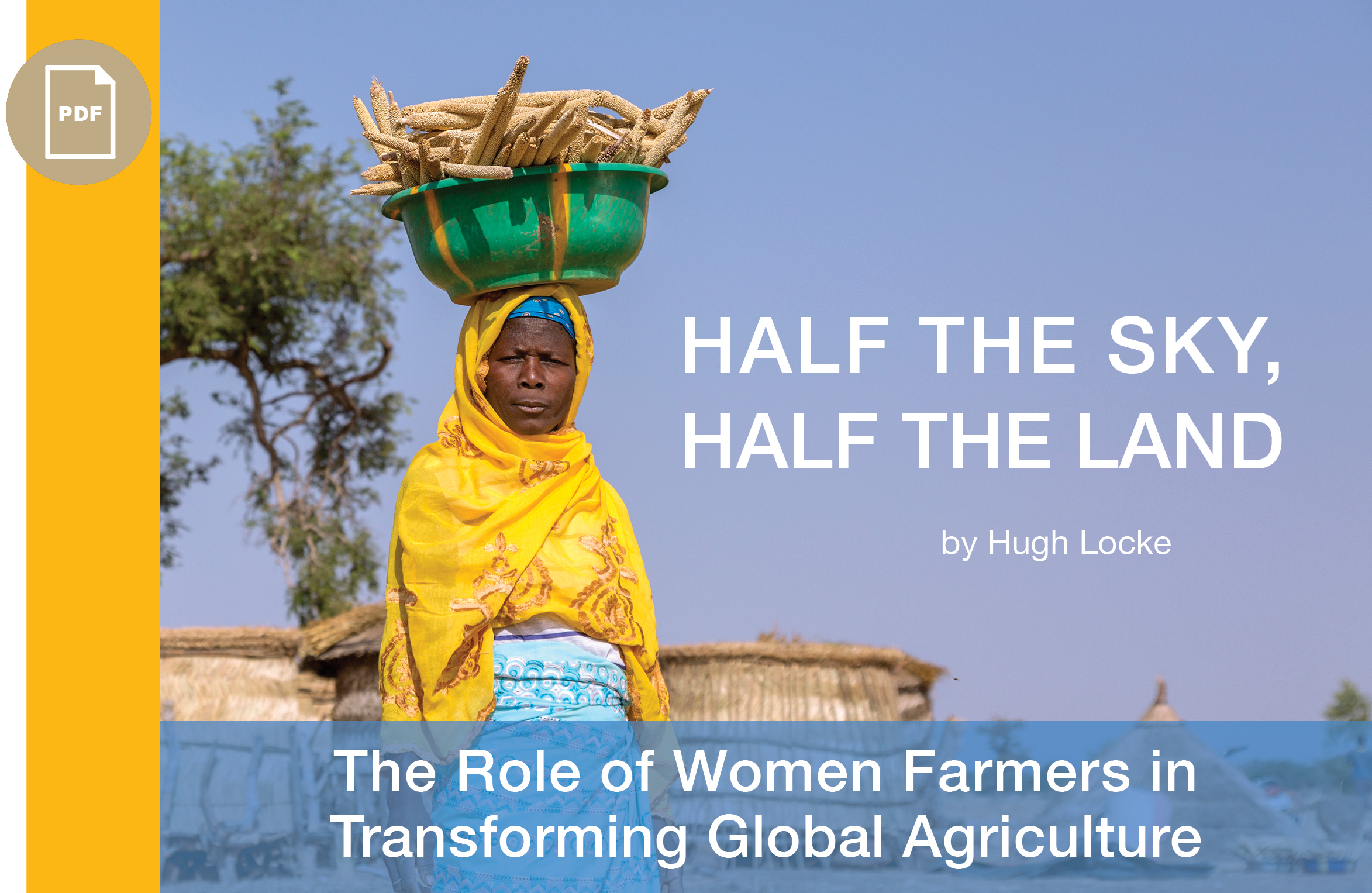
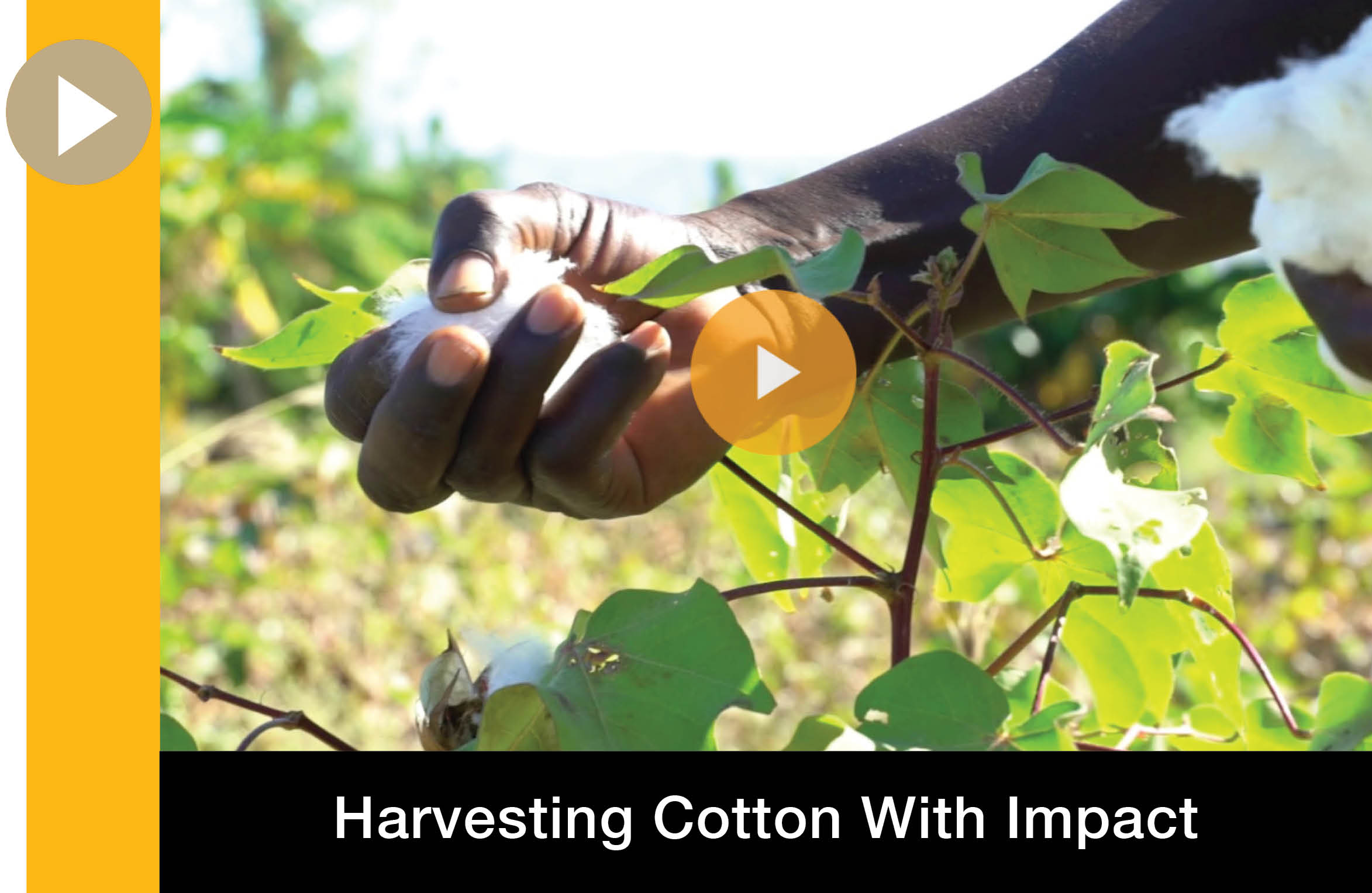
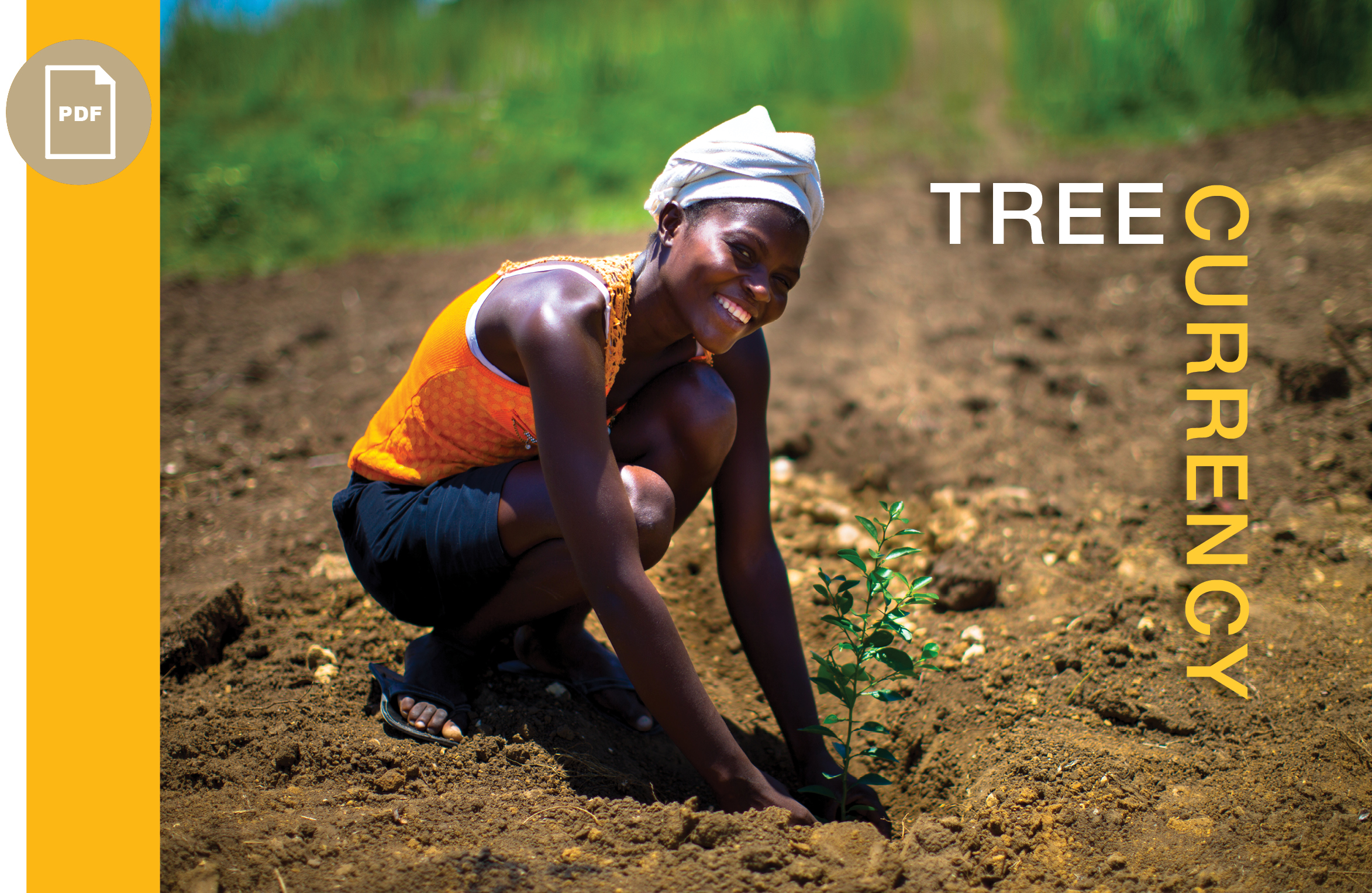
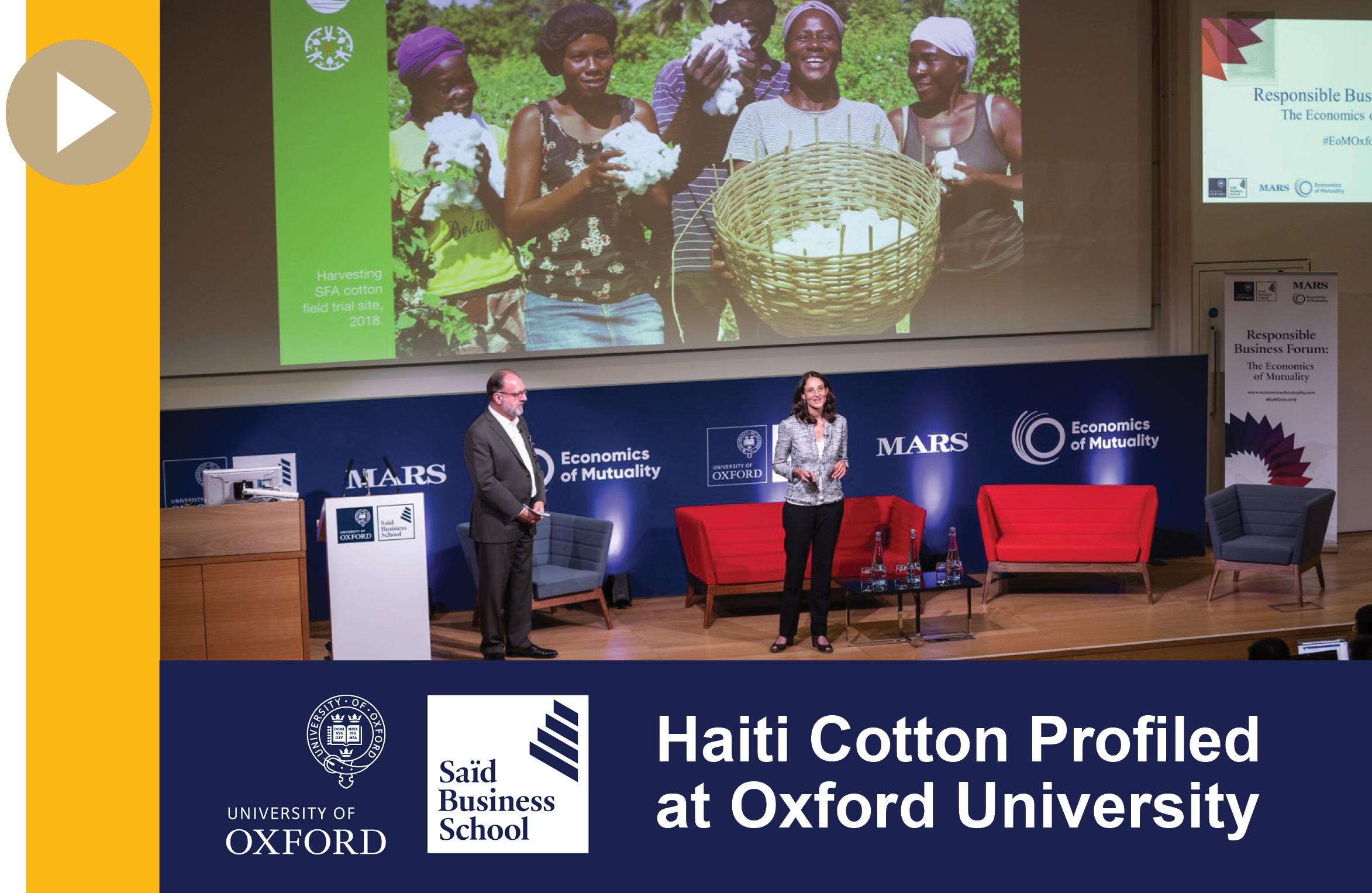
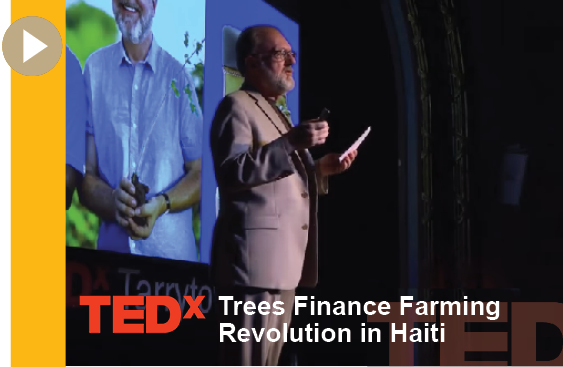
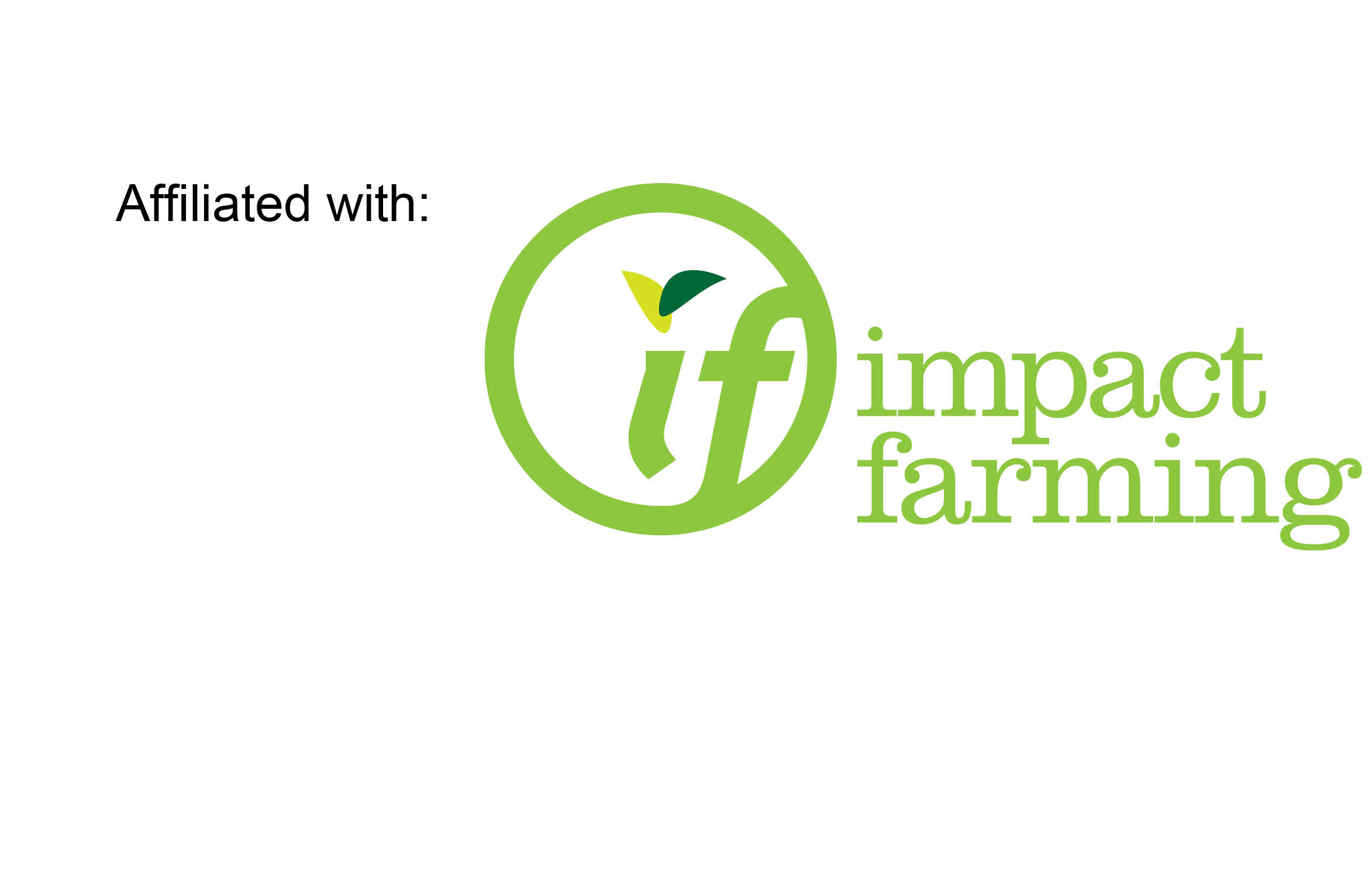

Reader Comments